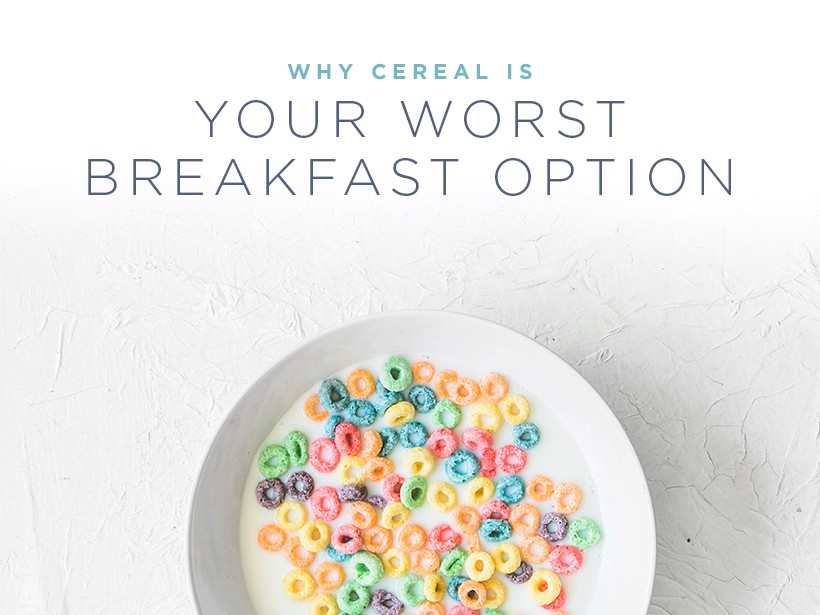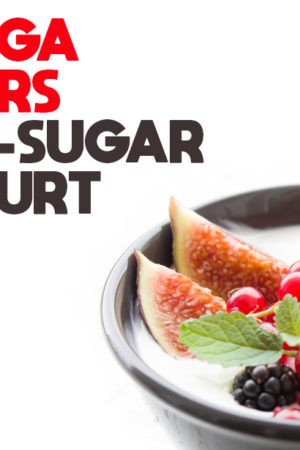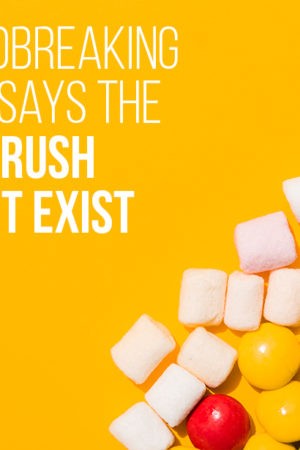They say that breakfast is the most important meal of the day. Lots of Americans skip this meal, and even when they don't, they opt for heaping bowls of refined carbs and added sugar. It's no wonder so many people experience a mid-morning crash, despite eating breakfast. Most cereals, even the seemingly healthy ones, provide little nutritional value. Of course, clever packaging would have consumers believe otherwise.
Scary amounts of sugar
That post-breakfast slump that many individuals are familiar with is probably due to various sugar sources hiding in their cereal. The majority of cereals are loaded with simple carbs and added sugars, with little to no protein or fiber. This means that even after eating a large bowl, hunger will come back soon afterward. Plus, energy levels may spike for a short period, but the crash will be rough.
A look at the numbers reveals the frightening reality of just how sweet some popular cereals are. For example, Corn Flakes, a seemingly boring, slightly healthy option, packs 8 grams of sugar in a 1-cup serving.¹ Frosted Mini-Wheats may brag about its fiber content, but it contains 11 grams of sugar per serving. By the way, the recommended serving size is just 1/2 cup; most people are probably eating more.
What about “healthy” cereals?
Some folks mean well and try to choose an option that seems nutritionally superior. Kashi,² Nature's Path,³ and Fiber One⁴ are a few brands that they might consider to be better choices. Yet these so-called “better for you” cereals actually contain just as much, if not more sugar. Their marketing might make consumers feel like they're choosing wisely, but the truth is in the ingredients list. What's worse is that a lot of cereal advertising targets children,⁵ an impressionable audience that typically isn't aware of how to make proper eating choices.
The trouble is, cereal alone just doesn't provide the adequate nutrition people need to start their day off right. It's best to have a steady energy source that won't spike blood sugar levels. Protein is something that's missing from most people's breakfast, but it's essential for keeping them satisfied until lunchtime. Likewise, healthy fats are pretty much absent from most cereals, but they can actually help the body absorb more vitamins as well as improve heart health.
Better breakfast alternatives
All hope is not lost. People need to eat, so it helps to have some nutritionist-approved meals on hand. Eggs are incredibly versatile and provide the protein and fat that individuals need to stay satiated all morning. Pair them with veggies for a complete meal. Protein shakes are another viable option; just add protein powder, a splash of milk, and some spinach for added nutritional value.
For those on a time crunch, there's even a keto-friendly meal replacement shake filled with protein, fiber, and loads of good fats. A bit of meal planning and a closer look at nutrition labels can make a huge difference in breakfast choices.
NUTRITIONAL DISCLAIMER
The content on this website should not be taken as medical advice and you should ALWAYS consult with your doctor before starting any diet or exercise program. We provide nutritional data for our recipes as a courtesy to our readers. We use Total Keto Diet app software to calculate the nutrition and we remove fiber and sugar alcohols, like erythritol, from the total carbohydrate count to get to the net carb count, as they do not affect your blood glucose levels. You should independently calculate nutritional information on your own and not rely on our data. The website or content herein is not intended to cure, prevent, diagnose or treat any disease. This website shall not be liable for adverse reactions or any other outcome resulting from the use of recipes or recommendations on the Website or actions you take as a result. Any action you take is strictly at your own risk.
- Why Cereal is Your Worst Breakfast Option - March 20, 2019
- Munchery Meal Delivery Service Suspends Majority of Operations - July 17, 2018































